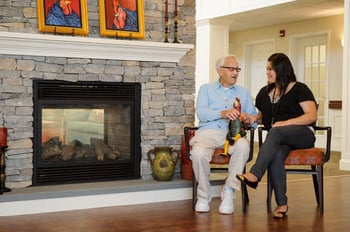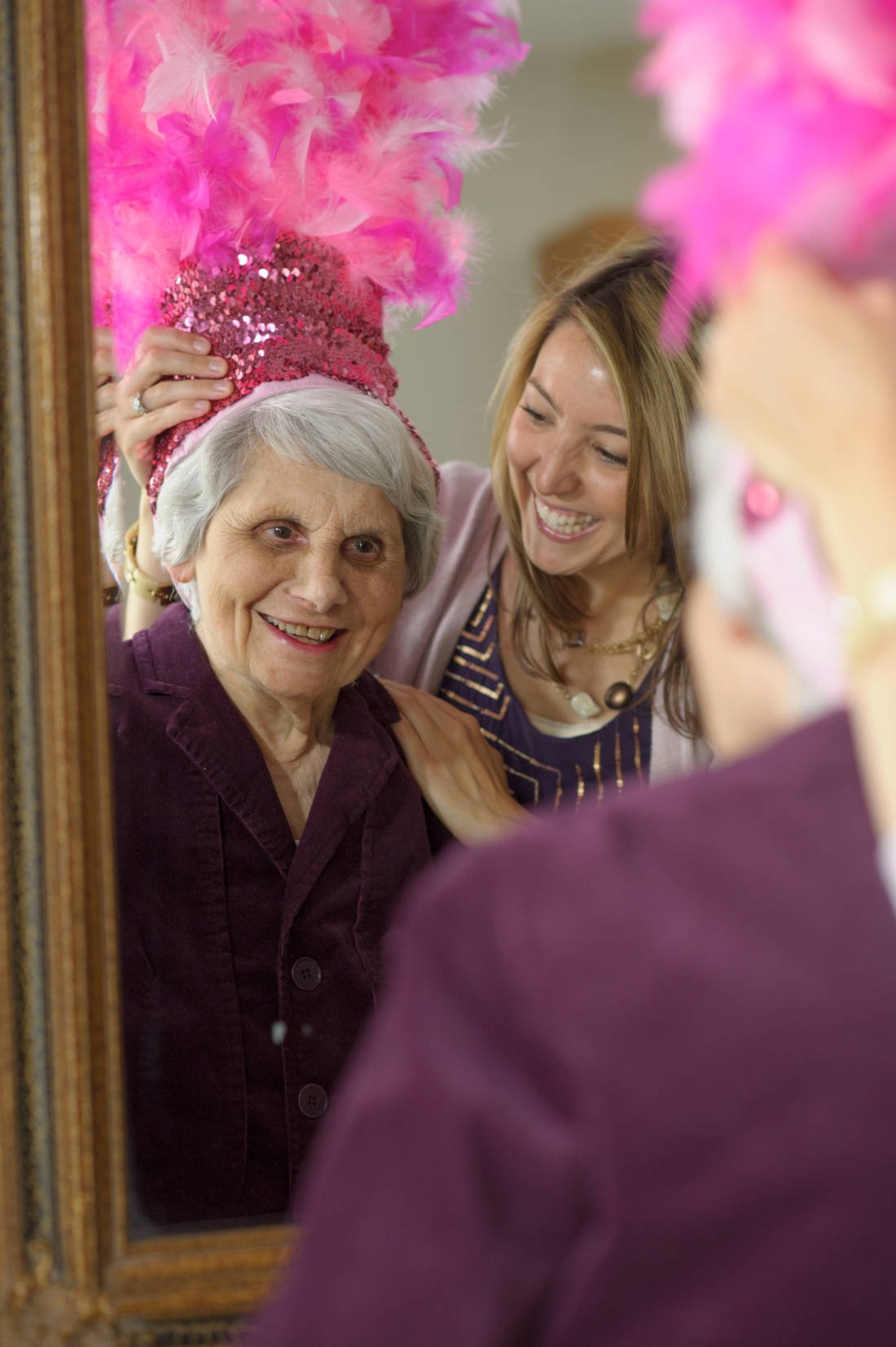Keeping Your Aging Loved One Warm This Winter
 Winter’s arrival puts a chill in the air, but did you know that older adults are even more susceptible to the cold? Let’s take a closer look at why your aging loved one may feel colder than usual, along with tips and techniques for helping seniors stay happy and healthy when the thermometer drops.
Winter’s arrival puts a chill in the air, but did you know that older adults are even more susceptible to the cold? Let’s take a closer look at why your aging loved one may feel colder than usual, along with tips and techniques for helping seniors stay happy and healthy when the thermometer drops.
Seniors and the Cold
Several factors contribute to causing seniors to react more extremely to the cold. A natural part of the aging process, the slowing of the metabolism, tops the list. Older bodies simply have to work harder in order to maintain normal body temperature of 98.6 degrees. Adding to this are chronic medical conditions, some medications, and cardiovascular disease -- all of which can amplify the impact of cold on seniors.
But managing the cold weather isn’t just a matter of comfort. Because senior bodies are unable to efficiently generate heat, they are also vulnerable to hypothermia, a dangerous condition in which body temperatures drop below 95 degrees. And while you may think subzero temperatures are a requirement for hypothermia to set in, some seniors can develop hypothermia in temperatures as high as 75 degrees, according to Johns Hopkins. This can be life-threatening: as many as 50 percent of seniors who develop hypothermia don’t survive due to cardiac arrest.
Tips for Warming Up
Caregivers can take a few simple steps to protect their aging loved ones from the cold this winter --starting at home. Your loved one’s thermostat should be set between 68 and 70 degrees or warmer; additionally, a humidifier can help keep the air moist.
The right clothes are also important. Aging adults should dress in warm layers, especially when venturing outside. Scarves, gloves and hats are particularly important as 30 percent of body heat is lost through the head. Any clothing that gets damp or wet should be removed immediately.
Furthermore, eating a nutritious meal prior to exposure to the cold can help keep hypothermia at bay. How? By providing energy which generates heat. Hot drinks also help with warming, but steer clear of alcohol which triggers heat loss.
If your aging loved one lives alone, check in frequently when the weather drops. Ask a trusted neighbor to drop by and check the thermostat if you're not available during a cold spell.
Know the Signs
All caregivers should know the signs of hypothermia, which include drowsiness, sluggishness, confusion, slurred speech, cold skin, and difficulty with fine finger movements and/or numbness of the extremities. Any of these symptoms -- which typically come on gradually -- may signal the onset of hypothermia and call for immediate medical attention. Waiting for shivering? Don't. Many older adults who suffer from hypothermia don’t shiver.
If your aging loved one is showing signs of hypothermia, use your own body heat or a blanket for warming while you wait for assistance. (Do not rub skin or put your aging loved one in a bath or shower.)
While cold susceptibility is a fact of life for many seniors, discomfort and hypothermia don’t have to be part of the equation. Caregivers can play a vital role in safeguarding senior health and wellness by understanding cold weather threats and taking steps to counter them.
Key Takeaways
- Your aging loved one may be suffering from increased sensitivity to cold this winter.
- Caregivers can take a few simple steps to keep loved ones comfortable while also decreasing the risk of hypothermia.
- Caregivers should be aware of the signs of hypothermia and seek immediate medical help if symptom arise.
About Marissa Salvesen
My journey into the world of senior living began when I started working for United Methodist Homes in 2010. Starting as an Activities Director at one of our award-winning assisted and independent living communities and then transitioning to Marketing and Promotions Manager for UMH, I now work as the Manager of Mission Development, fostering the Mission and Values of our organization. I love sharing stories about the many ways we build meaningful relationships and enrich the lives of those we serve, and am proud to be part of building UMH’s 140-year legacy of caring. Wondering what makes our communities such special places to live and work? Connect with me and find out!

Our Blog is a 2016 Platinum Generations Award Winner! The Generations Award is an annual international competition for excellence in senior marketing recognizing professionals who have communicated to the 50+ Mature Markets.



